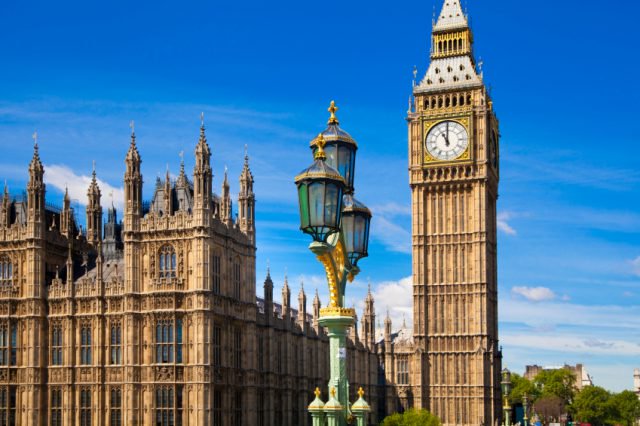The Budget 2016-reaction
The Budget has been and gone for another year and as always, responses to the Chancellor’s latest address have been strong and varied.
Many people in the housing market were left disappointed by what they conceived to be the lack of meaningful housing initiatives, on the back of Mr Osborne’s previously perceived attack on property purchasers.
Changes
Announcements in the Budget affecting the housing market were:
- A 0.5% rise in Insurance Premium Tax, which will raise £700m for new flood defences
- Commercial stamp duty 0% rate on purchases up to £150,000. This will rise to 2% on next £100,000 and a 5% top rate above £250,000
- Capital gains tax to be slashed from 28% to 20% and from 18% to 10% for taxpayers paying a basic rate
Reaction
A common reaction from onlookers is that the Budget represents a missed opportunity for the Government to address housing issues.
Richard Pike, sales and marketing director at Phoebus Software, said, ‘for a budget that claims to be for the next generation there was a disappointing lack of definitive measures to improve what the Chancellor admits is a failure in the UK to provide new housing. If we are the builders, as Mr Osborne states, what exactly is the Government doing to help? The introduction of a more simple way for the younger generation to save is of course welcome, but If they are saving for houses that don’t exist how is this beneficial in the short term?’[1]
David Cox, managing director of the Association of Residential Letting Agents (ARLA) feels that, ‘this is now the third Budget which directly attacks landlords.’ He continued by saying, ‘the sector has been punitively taxed, with stamp duty on buy-to-let properties, mortgage interest relief and now capital gains tax changes. It’s an outright assault on the sector!’[1]
‘In November, when Mr Osborne announced an increase in stamp duty tax on buy-to-let (BTL) properties, we described this as a catastrophic move. Today’s news that larger investors will also have to pay the tax is even worse. Professional landlords – those who typically own more than 15 properties – play a vital role in providing rental stock to the market, and providing the army of renters we have in this country with housing. Our members forecast that the supply of BTL properties will dwindle when the new tax comes in to effect, and this news means that supply will fall even faster and harder. We’re already in a position where demand out-strips supply and as supply falls, rent costs rise, meaning the goal of home-ownership falls even further out of reach for most of the country’s renters,’ he added.[1]
Capital Pains
In addition, the decision to slash Capital Gains Tax has also perplexed many industry peers.
Richard Lambert, Chief Executive Officer of the National Landlords, observed, ‘the Chancellor said that this Government would tax the things it wants to reduce not the things it wants to encourage. On that basis, it’s clear he does not regard ordinary people putting their own money into providing homes as worthwhile. The steady upward ratchet of taxation on landlords over the past year shows that George Osborne is determined to bear down on the private rented sector, but he still depends on the tax revenues he expects to pull in from them.’[1]

The Budget 2016-reaction
CEO of eMoov, Russell Quirk, branded the Budget as, ‘very disappointing from a property point of view and for UK buyers and sellers.’ He feels, ‘the capital tax reductions, whilst bold, are a missed trick and a kick in the teeth for those second-home sellers, that will not benefit from a reduction in capital gains tax on their property sale. This was hardly a budget to assist hard working people with more than one property, not to mention Mr Osborne’s total failure to address the issue of housing supply that has been touched upon in previous budgets.’[1]
Quirk went on to say that it is, ‘startling that the provision of much-needed housing supply did not seem to be referred to at all, despite rhetoric in previous budgets seemingly encouraging public land to be turned over to address the housing supply issue.’[1]
‘The move to apply new stamp duty changes to larger institutional investors, as well as smaller Buy to Let landlords, is a fair one, although I believe this was probably an oversight from last year and nothing to shout from the rooftops about.’[1]
Desperate
Nick Leeming, Chairman of Jackson-Strops & Staff, noted that Britain is, ‘in desperate need of a housing policy which caters for the long term, reflecting the future needs of a growing population and changing demand for property type and tenure, which looks beyond the next Parliamentary period. We are also in desperate need of more homes. Today’s Budget was a prime opportunity to outline a progressive policy but unfortunately housing did not take centre stage – which is very disappointing. We need more incentives, and easier processes, for small and medium-sized housebuilders to get building. The construction industry in this country saw a significant slump after the economic downturn, with many industry leaders taking the opportunity to step down. Those skills have therefore been lost and successive governments have introduced few incentives to build them back up.’[1]
‘The confirmation that there will be a 3% stamp duty surcharge for second home owners is a real blow – and the brunt of this change will be felt by tenants and not landlords. There was no detail given today in the Chancellor’s speech and there are many questions unanswered before April 1st. However, our analysis shows that house price inflation over the next year will absorb stamp duty costs for landlords under the new regime in eight out of 10 regions across England and Wales, so the intended deterrent effect of the new policy is limited. Where landlords don’t want to shoulder the additional stamp duty cost, this will be passed on to their tenants in the form of rent – effectively making this a tenants’ tax,’ he added.[1]
[1] http://www.propertyreporter.co.uk/landlords/a-bad-budget-for-the-housing-industry.html




